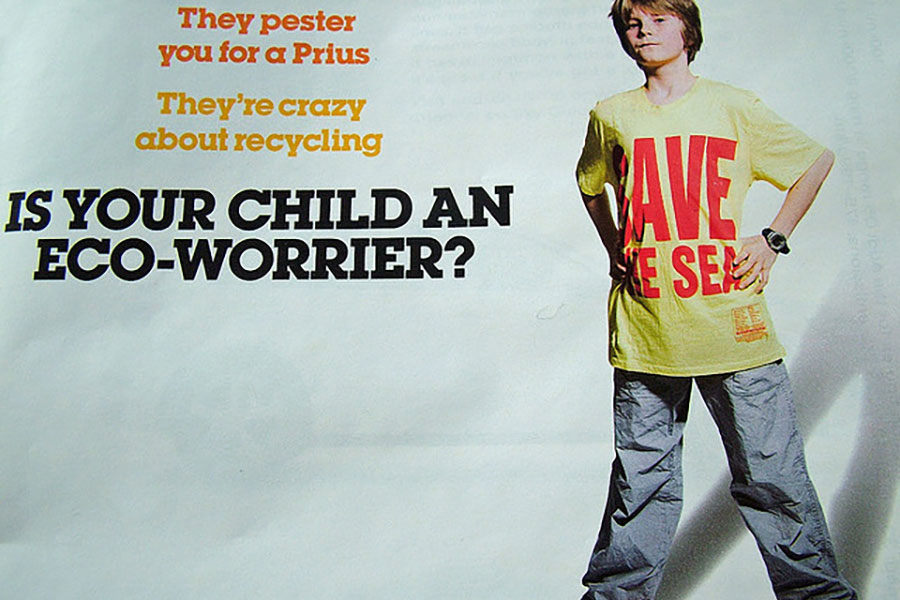I woke up this morning to an angry journalist on the radio who vigorously complained about Pope Francis’ latest comments on profits. Apparently His Sanctity had spoken about the dangers of “capital dominating men instead of men controlling capital” at an event with cooperative credit banks last Friday.
Although angry radio talk is not my cup of tea, I found this popular Spanish journalist’s rant very interesting. It took me back to something I read yesterday in a fascinating book called “Wild”, by Jay Griffiths. The author describes Peruvian indigenous tribes and their beliefs about the lush Amazon landscape they inhabit. It seems that they are angered by how large pharmaceutical companies come to them in search of knowledge around plants’ curative properties.
Once they have it, they slap an international patent on it and exploit it for profit. As Griffiths writes: “They rob us and make large amounts of money from our knowledge. Not for nothing is wild knowledge called ‘common knowledge’— common … is free, open, unenclosed; and ‘free’ financially; it must not be bought or sold for profit.”
In awe of what I understood to be another simple, obvious piece of indigenous, wild wisdom, I spent all afternoon thinking about how profit is blinding us today. Why are we so obsessed by profit? Why have we built an economy where operating without profit makes no sense? And how much more destruction can profit bring upon our planet before we come back to the wild, primal senses we once had, but have never forgotten?
Of course, if we take profit off the table 99% of western population will be up in arms. Profit seems to be the only good reason we have to keep working our lives away, missing out on our kids, our families and our own right to playful enjoyment of life. Everybody says it’s great and yearly rankings on every well-respected economic publication heartily praise those who have peaked the list of profit. Pressure to make profits is so huge that the freedom to not make them has disappeared. In our economy, those who don’t make a profit are mismanaging their companies: What losers!!
And yet we go back to look at the way indigenous people live in remote corners of our planet and we learn that a big part of training for young hunters has to do with knowing that taking too much is not sustainable. Young adults in the wild are taught respect, self-restraint, and the importance of doing something useful with what they take in order to honor the very gift they received. Young men and women in our world do an MBA where they are instructed to pursue profit whatever it takes.
Our collective obsession with profit is the very root of our ecological disasters, as Pope Francis pointed out in his latest encyclical, published last June. We don’t need to be Catholic to recognize the fundamental questions the Pope is courageously hitting on. It always takes a courageous leader to say what everybody knows, but prefers not to mention.
So why aren’t we doing anything about it? Because it’s easier to remain scared. Profit hides our fears. Profit is that hidden stash we save for when things turn bad. We need profit in order to sleep at night. Profit patronizes and stifles us to stay small, terrified, weak and not courageous at all. An indigenous tribal leader, in contrast, would feel deeply ashamed of making a profit.
It’s also true that aboriginal peoples are much better at dealing with their emotions than we are. They have not been corrupted by centuries of cruel wars and senseless slaughter. Wild tribes still live childhoods in which wildness and emotion are not dangerous, but playful tests to be savored and eventually overcome. We, on the other hand, live fearfully in comfortable lives in which quality is determined by the amount of material comfort protecting us from our own angst.
We, then, have the chance to be greater. You and I both have a bigger challenge on our hands if we decide to drop our profit mindsets and dare to approach lifestyles of uncertainty and a little more scarcity. What is it we fear? Not having enough? Ironically, this crisis should have taught us all that living with a little less isn’t so bad. The lesson in scarcity is not one of strict sacrifice, as some would have us believe, but rather an invitation to flow with what comes and goes. Not giving into our temptation to buy a new car, for example, would allow us to resolve our feelings instead of smothering them temporarily. Once we did face and release such feelings, that car might fall right into our laps for a bargain price!
Profit has become king in a society riveted with fear. All we need to do is face it. As long as we hide behind profit to keep our own fear away, we prolong this paradigm, and what’s worse, we teach our children to do the same. We set them up for little lives of shudders and tremors under the large, powerful shadow of what we dread.
We are all called to become warriors of the wild. The wild is full of wisdom and abundance. But in order to get back to the original state our species was designed for, we westerners have to face up to our legacy of wars, slaughter, pillage and violent profit. A warrior of the wild is he who has learned to fight through his own fear, resist the intensity of his own grief, and brave the expression of his own anger. It takes a lot of courage to let go of profit and face the unconscious history of emotional wreckage left behind from our many disputes over profit in the past.
Time is running out. The planet is too. Profit is not our friend. Embrace the Wild!




































